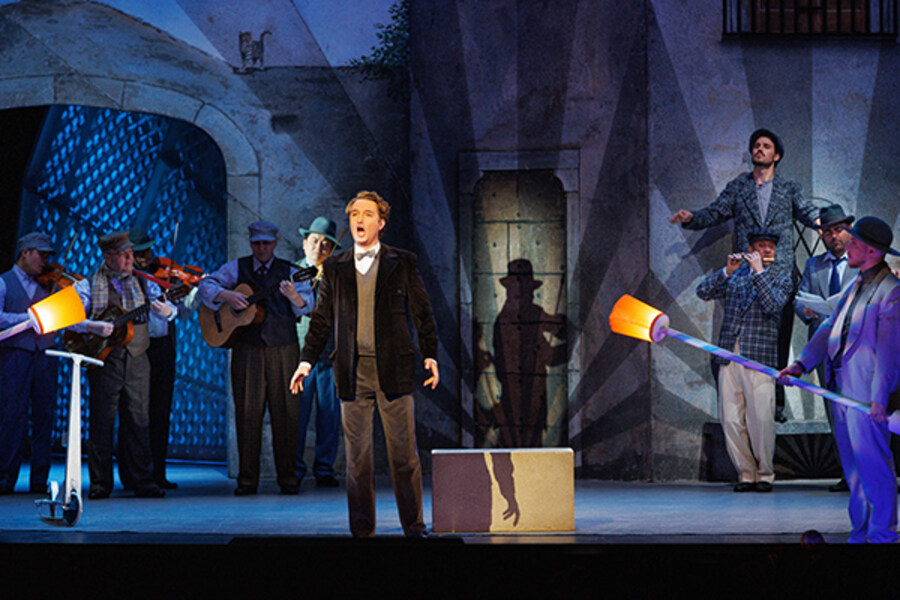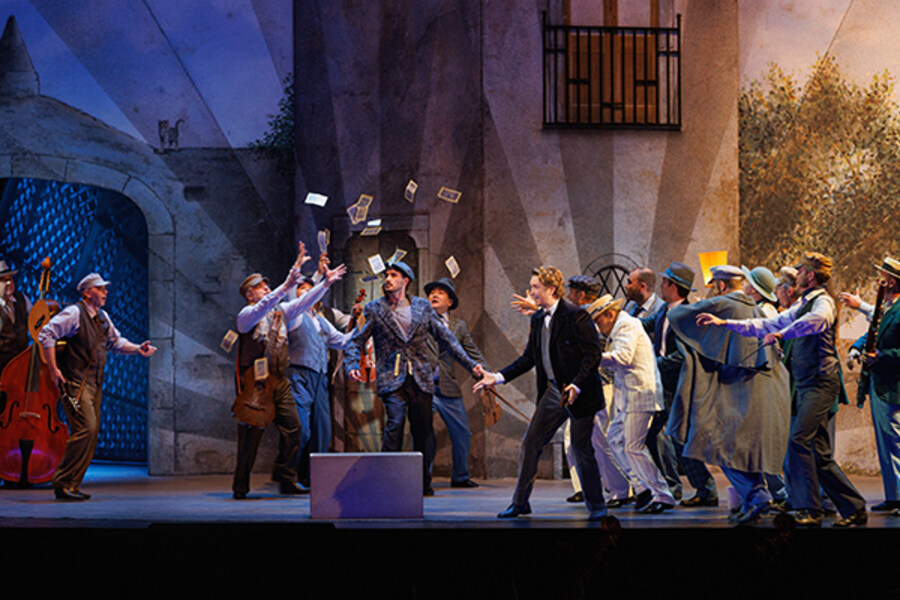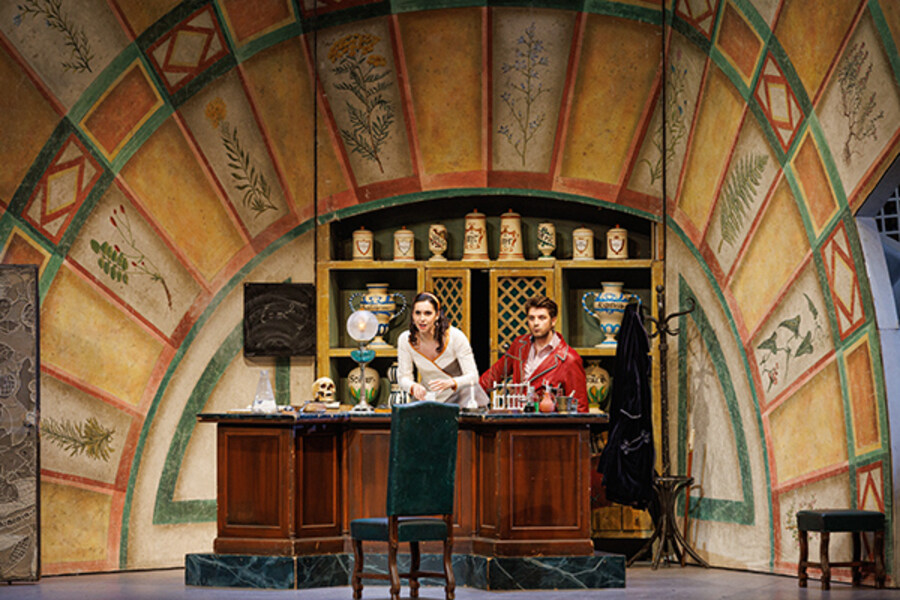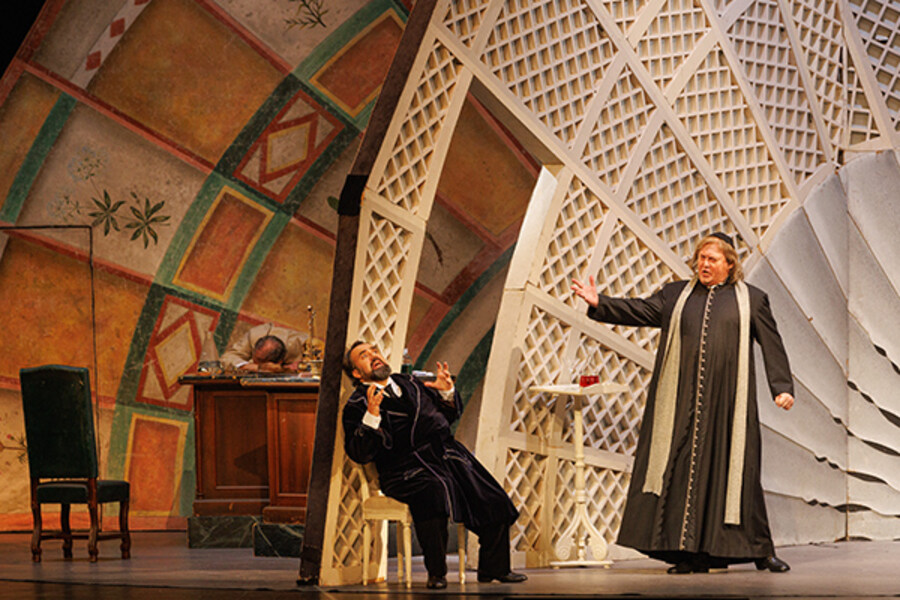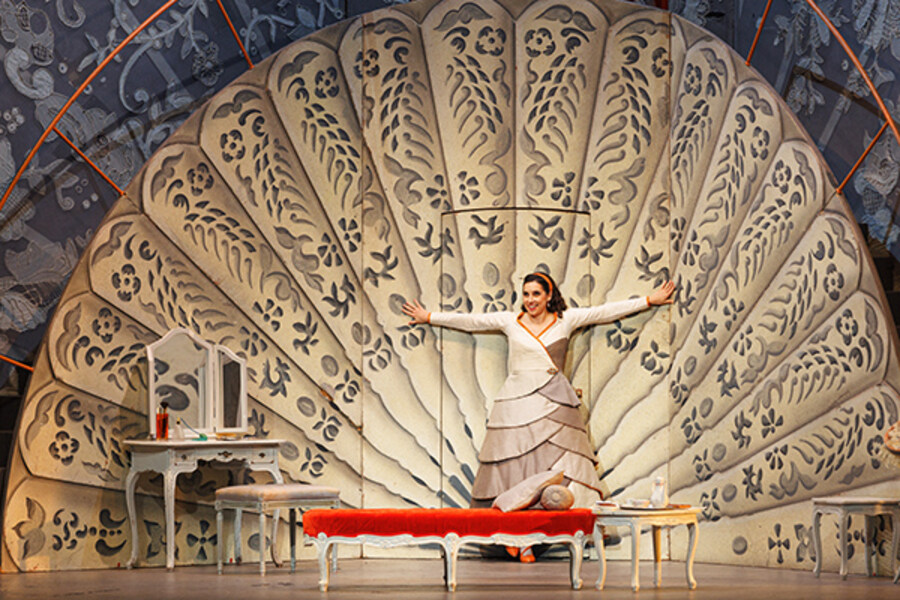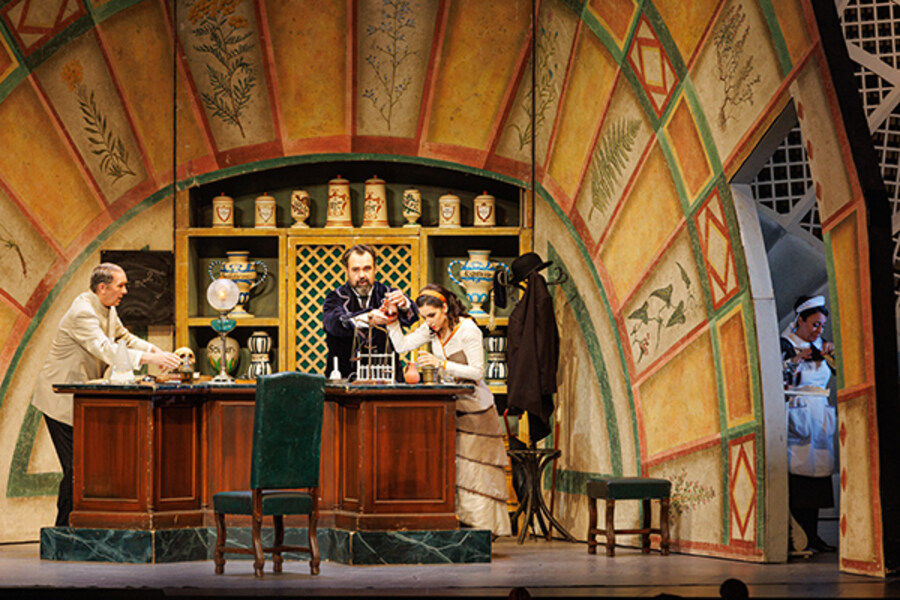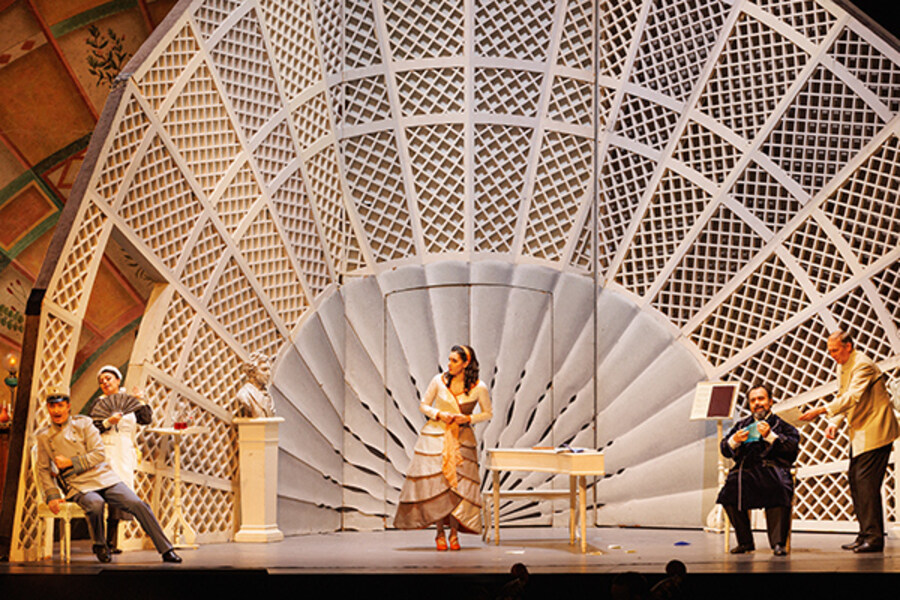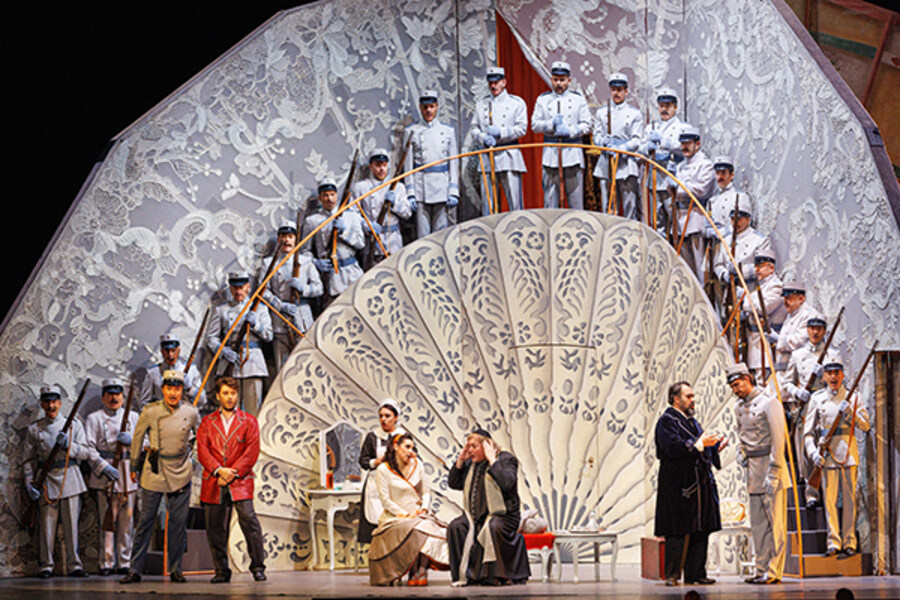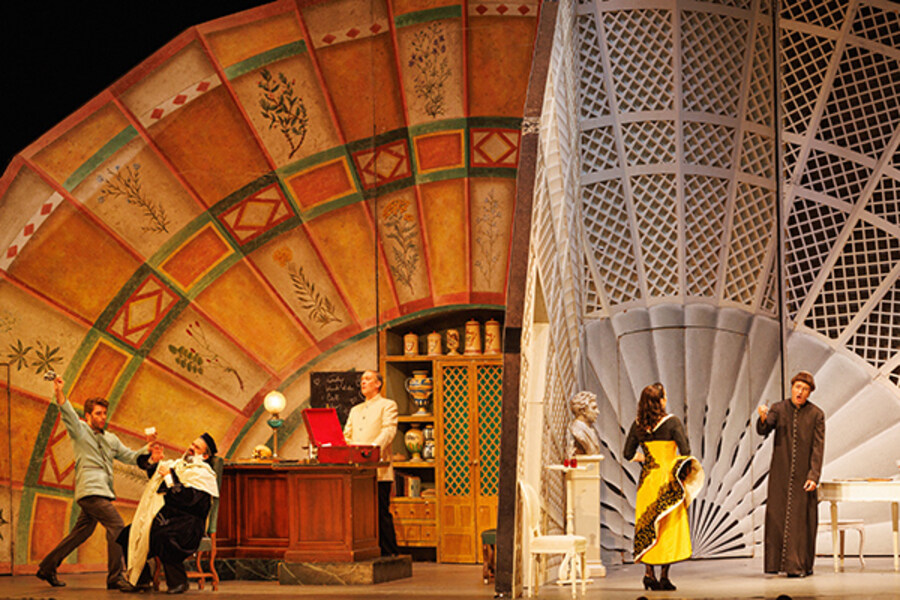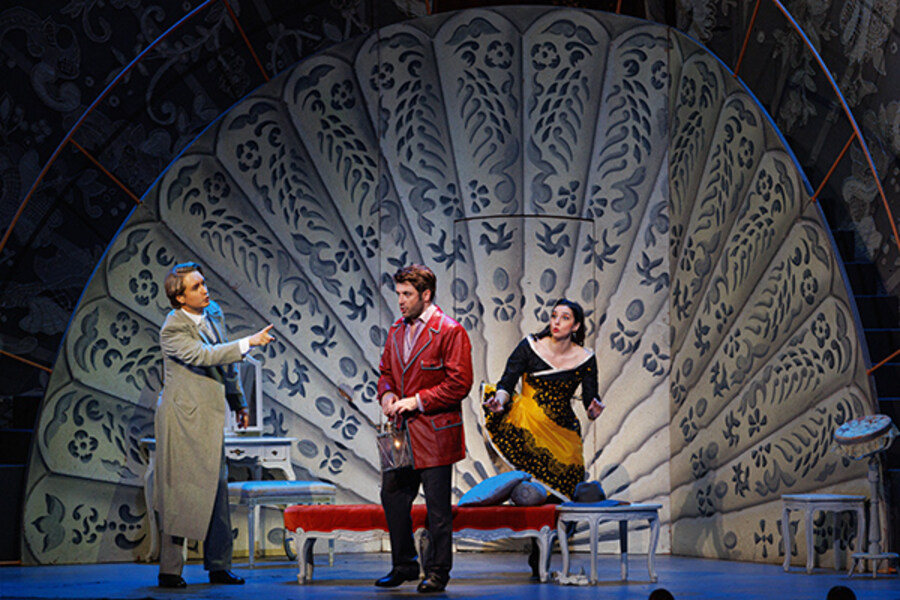Opera buffa in two acts
Libretto by Cesare Sterbini after the comedy »Le Barbier de Séville ou la Précaution inutile“ by Pierre Augustin Caron de Beaumarchais
Performed in Italian with German and English supertitles
Premiere
12. April 2008,
No further performances in the current season.
Explore
Il barbiere di Siviglia
